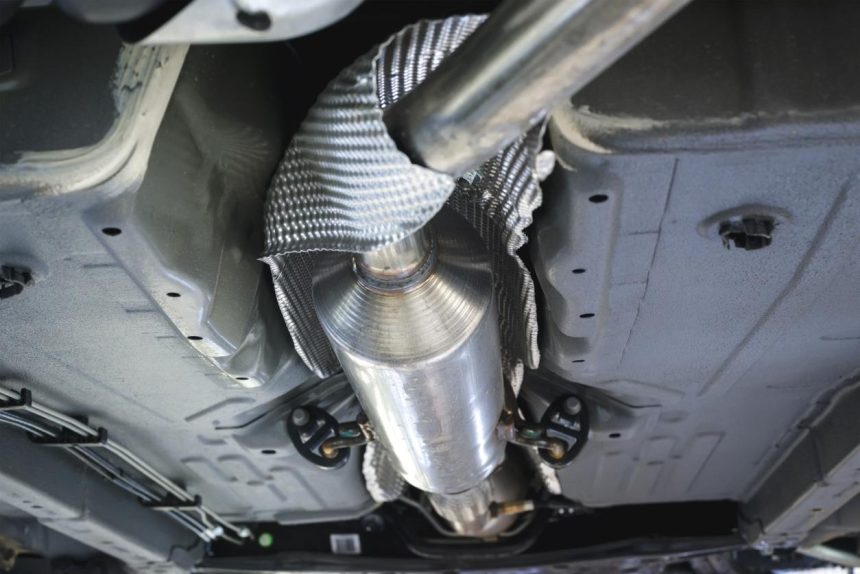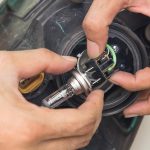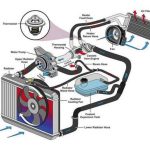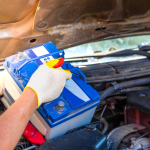When it comes to maintaining your vehicle, few components are as crucial as the catalytic converter. This unassuming part plays a vital role in reducing harmful emissions, ensuring your car runs cleanly and efficiently. However, if you’ve started to notice signs of a failing catalytic converter—such as a check engine light, decreased fuel efficiency, or unusual noises—you might find yourself wondering about the cost and process of replacement. Understanding the financial implications, as well as the factors that influence pricing, can help you make informed decisions and avoid any unpleasant surprises down the road.
In this article, we’ll walk you through everything you need to know about the cost to replace a catalytic converter, from average prices to the factors that can affect your final bill. Whether you’re a seasoned car enthusiast or a casual driver, we’ve got you covered with friendly advice and essential information!
Table of Contents
- Understanding Catalytic Converters and Their Importance
- Factors Influencing the Cost of Replacement
- Choosing the Right Replacement Option for Your Vehicle
- Tips for Saving Money on Catalytic Converter Replacement
- Q&A
- Future Outlook
Understanding Catalytic Converters and Their Importance
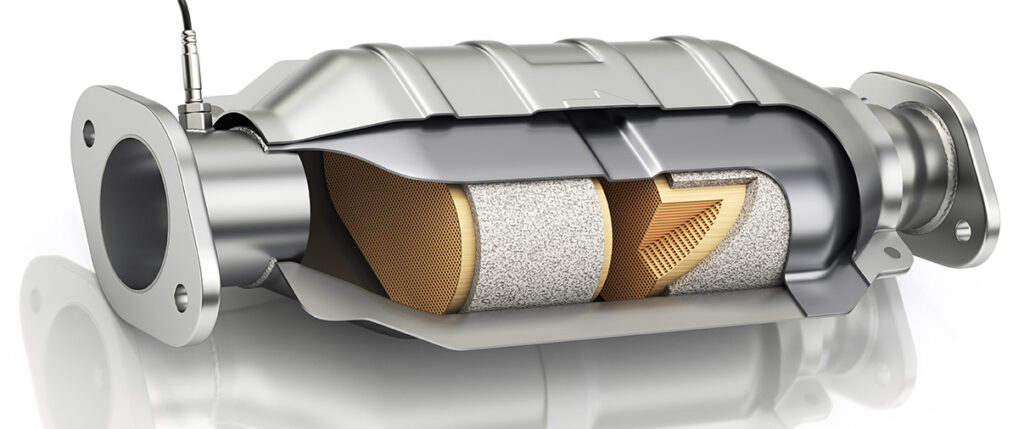
Catalytic converters play a pivotal role in the automotive emissions control system, ensuring that harmful gases produced during fuel combustion are significantly reduced before they enter the atmosphere. These components facilitate a chemical reaction that converts toxic pollutants like carbon monoxide, hydrocarbons, and nitrogen oxides into less harmful emissions, such as carbon dioxide and nitrogen. By doing so, they not only contribute to a cleaner environment but also help vehicles comply with stringent environmental regulations.
Aside from their environmental significance, catalytic converters are essential for optimizing engine performance and efficiency. When functioning properly, they enhance fuel efficiency and reduce engine strain, leading to better overall performance. However, when a catalytic converter malfunctions, it can severely impact your vehicle’s operation, leading to increased emissions and potential damage to the engine. Regular maintenance and timely replacement, when necessary, are crucial to ensure your vehicle runs smoothly and meets emission standards, ultimately saving you money on repairs and fines in the long run.
Factors Influencing the Cost of Replacement
When considering the cost of replacing a catalytic converter, several factors come into play that can significantly influence the final price. Make and model of your vehicle is vital since original equipment manufacturer (OEM) parts for luxury or foreign cars usually cost more than those for domestic vehicles. Additionally, your location matters; labor rates can vary between regions, and availability of parts can further affect costs. Lastly, the condition of the existing exhaust system and whether any additional repairs are needed can lead to unexpected expenses.
Another important element is the type of catalytic converter required—standard or high-performance units vary in price. Most catalytic converters fall under one of three categories: OEM, aftermarket, or universal. Each type has its own price range, with OEM converters typically being the most expensive due to their guaranteed compatibility and durability. Consider the following factors when assessing costs:
Warranty: Check if the new part comes with a warranty.
Environmental regulations: Some regions may require specific emissions standards.
Installation: DIY replacements can save on labor costs.
| Type | Typical Cost Range |
|---|---|
| OEM | $1,000 - $2,500 |
| Aftermarket | $300 – $1,000 |
| Universal | $100 – $500 |
Choosing the Right Replacement Option for Your Vehicle
When it’s time to replace your catalytic converter, the choices can be overwhelming. The right replacement option not only depends on your vehicle’s make and model but also on your budget and long-term goals. Here are some factors to consider:
OEM vs. Aftermarket: Original Equipment Manufacturer (OEM) parts are typically more expensive but guarantee compatibility and quality. Aftermarket converters can be less costly, yet their performance and longevity can vary significantly.
Legal Considerations: Ensure that your selected catalytic converter meets the emissions standards in your state. Using a non-compliant part could lead to fines or issues during inspections.
Warranty: Check if the replacement part comes with a warranty. A good warranty can provide peace of mind and protect your investment.
Additionally, assessing your vehicle’s overall condition can influence your decision. If your car is older or facing major repairs soon, investing in an expensive replacement may not be the best financial decision. Here’s a simple table to help clarify the potential costs:
| Replacement Option | Average Cost | Pros | Cons |
|---|---|---|---|
| OEM Catalytic Converter | $1,000 - $2,500 | Guaranteed compatibility, high quality | Higher cost |
| Aftermarket Catalytic Converter | $500 – $1,500 | More affordable options | Variable quality, potential compatibility issues |
| Used Catalytic Converter | $300 - $800 | Cost-effective solution | Unknown condition, short lifespan |
Tips for Saving Money on Catalytic Converter Replacement
Replacing a catalytic converter can be a significant expense, but there are several strategies to help you save money while ensuring you get a quality replacement. Start by shopping around and comparing prices from multiple auto repair shops and online retailers. Prices can vary widely, so it’s worth taking the time to do your research. Don’t forget to check if the shop offers any discounts or promotions that could lower the overall cost. Additionally, consider buying a refurbished or aftermarket catalytic converter, which can be substantially cheaper than new OEM parts, as long as they meet required performance standards.
Another effective way to save is by doing some of the legwork yourself. If you have basic mechanical skills, you might be able to remove the old catalytic converter and bring it in for replacement, reducing labor costs significantly. Remember to also look into warranty options that some parts come with, as a longer warranty period can save you money in the long run if any issues arise. Lastly, regular vehicle maintenance can help prevent problems that lead to catalytic converter failure, ultimately saving you from an untimely replacement.
Q&A
Q: What is a catalytic converter and why is it important?
A: A catalytic converter is an essential component of your vehicle’s exhaust system. Its primary function is to convert harmful pollutants in engine exhaust into less harmful emissions before they exit the tailpipe. This not only helps in reducing air pollution but also ensures that your vehicle complies with environmental regulations.
Q: How do I know if my catalytic converter needs to be replaced?
A: Common signs that your catalytic converter may need replacement include a noticeable decrease in engine performance, poor fuel efficiency, a check engine light illuminated on your dashboard, or a sulfur/rotten egg smell coming from the exhaust. If you experience any of these symptoms, it’s best to have a mechanic diagnose the issue.
Q: What is the average cost to replace a catalytic converter?
A: The cost to replace a catalytic converter typically ranges from $1,000 to $2,500, depending on factors such as the make and model of your vehicle, whether you choose an original equipment manufacturer (OEM) or aftermarket part, and labor costs in your area. It’s always a good idea to get multiple quotes from reputable mechanics to find the best price.
Q: Are there any DIY options for replacing a catalytic converter?
A: While some automotive enthusiasts might attempt a DIY replacement, it’s generally not recommended unless you have experience with vehicle repairs. Catalytic converters are often welded into the exhaust system, which requires specific tools and skills. Additionally, improper installation can lead to further issues with the exhaust system.
Q: Can I drive my car with a failing catalytic converter?
A: It’s best to avoid driving with a failing catalytic converter. Not only could it lead to more significant damage to your vehicle, but it can also result in failing emissions tests, leading to fines or legal issues in some areas. If you suspect yours is failing, it’s wise to address the issue promptly.
Q: Will insurance cover the cost of replacing a catalytic converter?
A: Coverage for catalytic converter replacement can vary by policy. Typically, if the damage is due to an accident or a covered peril, your insurance may assist with costs. However, if the replacement is due to wear and tear or age, you may be responsible for the full amount. It’s advisable to check your policy or talk to your insurance agent for clarification.
Q: Are there any ways to save on catalytic converter replacement?
A: Yes! To save on costs, consider the following tips:
- Shop around: Get multiple quotes from different mechanics to find the best deal.
- Aftermarket parts: Opting for reputable aftermarket catalytic converters can save you money compared to OEM parts.
- Regular maintenance: Keeping your vehicle well-maintained can help prevent damage to the catalytic converter and extend its lifespan.
Q: What can cause a catalytic converter to fail prematurely?
A: Several factors can lead to premature catalytic converter failure, including:
- Engine misfires, which can cause unburned fuel to enter the exhaust system.
- Oil or coolant leaks into the exhaust system.
- Clogged or damaged exhaust pipes.
- Poor maintenance, such as neglecting oil changes or ignoring check engine lights.
Being proactive with your vehicle’s care can help prolong the life of your catalytic converter.
Feel free to reach out with any additional questions or concerns regarding catalytic converters or automotive maintenance!
Future Outlook
understanding the cost to replace a catalytic converter is essential for any vehicle owner. Navigating the expenses associated with this vital component can help you make informed decisions and ensure your car runs smoothly and efficiently. As we’ve explored, prices can vary widely based on your vehicle’s make and model, the type of catalytic converter required, and whether you choose an OEM or aftermarket part.
It’s always a good idea to shop around, get multiple quotes, and consider the reputation of your chosen repair shop. Remember, investing in a quality catalytic converter not only keeps your vehicle compliant with emissions regulations but also contributes to better fuel efficiency and performance in the long run.
Should you ever face issues with your catalytic converter, don’t hesitate to reach out to a trusted mechanic for advice. With the right knowledge and resources, you can tackle this essential repair with confidence. Safe driving, and may your journeys be smooth and enjoyable!




